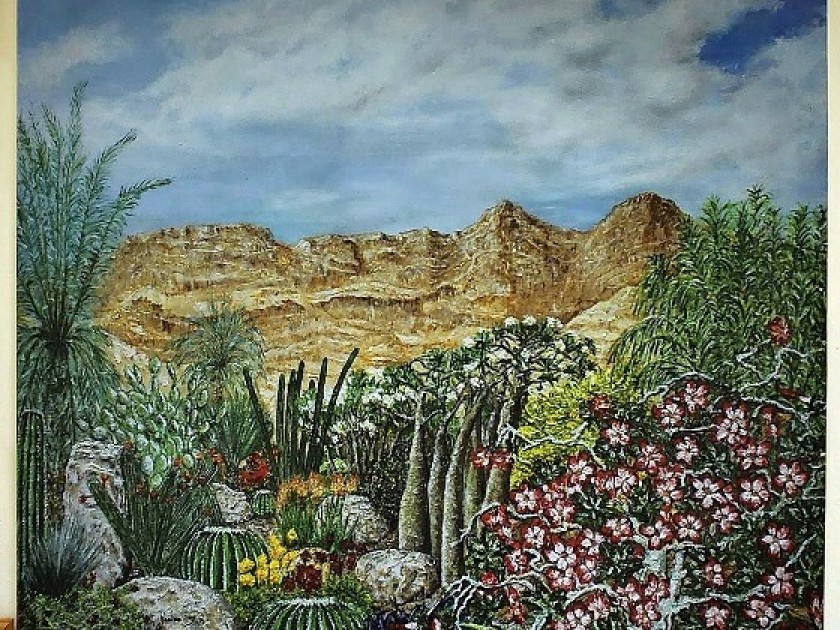Join a community of readers who are committed to Jewish stories
Sign up for JBC’s Nu Reads, a curated selection of Jewish books delivered straight to your door!

Heritage Conservation | Outside The City | Pikiwiki Israel, CC BY 2.5 <https://creativecommons.org/licenses/by/2.5>, via Wikimedia Commons
One of my sweetest childhood memories involves waking up to a paper bag of candies on my birthday. Always generic jelly beans — my favorite. The bag would be planted right next to my bed, making it the very first thing I saw when I opened my eyes. Because I had never considered how or where the tradition began, I was surprised to discover that it had a long history. My mom recently shared that it was my dad’s tradition from his own childhood on a kibbutz, an Israeli community that combined socialist, democratic, and Zionist ideals.
As a clinical psychologist, I appreciate the impact that the childhood experiences of our parents, their parents, and so on have on who we become as adults. I see clearly how my own childhood has rubbed off on my children’s upbringing (and their dental health). But I’m also regularly reminded that I have a tendency to overlook the effects of my father’s unusual kibbutz upbringing on me.
This kind of omission is more common than most of us realize. Sometimes it’s because we do not share a gender with our parent(s). Sometimes it’s because we hold competing values and priorities. For me, though, the reason that I seldom regard my father’s childhood as an influence is that it diverged so starkly from my own. I was raised by two parents living in the same home together with their kids — whereas he and his siblings were not.
The kibbutz movement attempted to radically transform family life in order to provide a better existence for all. It prioritized men’s and women’s roles as both parents and workers, and it sought to develop practices for raising children with values of equality, hard work, agricultural awareness, and community. These children were considered to belong to the kibbutz, not just their individual parents. As such, they resided in beit yeladim, children’s houses, with same-aged peers. Although parents had dedicated afternoon hours to visit with their children, their main caregivers were kibbutz members.
There’s no question that the way that my father was raised shaped who he became: hard-working, nature-loving, and a passionate optimist. But in many ways, he was always a mystery to me.
In many ways, kibbutz living offered a brilliant solution to a problem that continues to plague modern families: even when moms work, they still are yoked to the domestic sphere more than their male counterparts. In the kibbutz, children could receive high-quality childcare, support for extrafamilial activities, and opportunities to be with family — and their parents could continue working and having a social life.
There’s no question that the way that my father was raised shaped who he became: hard-working, nature-loving, and a passionate optimist. But in many ways, he was always a mystery to me. I knew his interests (politics and gardening), his political leanings (far left in his youth to right by the end of his life), and his job history (taxi cab driver in Israel to Silicon Valley entrepreneur). But I knew little of his emotional life or personal belief system. He was reserved when it came to talking about either.
After my dad passed away, I began emailing with his youngest sister to try to get to know him, and perhaps myself, better. A few months into a light-hearted email exchange, I typed a request. “Can I ask you a funny question? As I’ve been reflecting on my dad, my hero, something I keep coming back to is how much he didn’t ever want to talk about feelings. You seem very different in that way. Why do you think that is? Is it because he was an Israeli man (versus woman)? Or because of all the trauma he endured after being wounded as a soldier and his decision to be positive and not allow negative energy to get in his way? Or something else I don’t know about?”
Her response offered a truth that I had probably always known at some level — just not consciously. She wrote, “In regards to your question, it is not funny at all. It is something I was thinking a lot along my life … After my brother was born, when he got to the kibbutz from the hospital, he was put in the ‘babies house.’ No mom around, that was it!! I think that this piece of his biography shaped a pretty big part of his emotional way in life.”
The invisible legacy of kibbutz life has shaped me, just as invisible legacies shape us all. In fact, my being a descendant of the kibbutz probably drove my passion for understanding how to thrive in working parenthood — so much so that I penned an entire book about it. By making invisible legacies a bit more visible, we can be deliberate about choosing which parts of those legacies we hold fast to, and which we release. My father, for one, decided to raise us outside the kibbutz, in a home where we resided together. My own process of making the kibbutz legacy more visible has helped me clarify how I’d like to show up both in my work life and in my relationships with my children. And it’s allowed me to appreciate the significance of birthday candy all the more.
Yael Schonbrun is a psychologist, assistant professor at Brown University, co-host of the Psychologists Off the Clock podcast, and author of Work, Parent, Thrive.